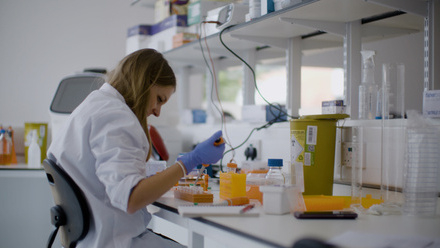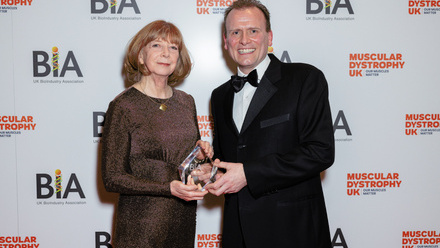CEO Update - 7 October 2024
It's great to see early-stage companies, whose leaders have participated in our PULSE and TechBio Boost programmes, receiving funding and support through this initiative.
Looking into the specifics of these deals reveals the transformative impact they could have. For example, £9 million has been given to the MANIFEST consortium. MANIFEST studies biomarkers in patients before immunotherapy to develop tests that monitor these indicators during treatment. These tests could predict treatment effectiveness, enabling doctors to personalise immunotherapy for each patient. It’s promising to see the UK leading the way in healthcare innovation, using technology to personalise treatments and improve outcomes for everyone.
West Streeting’s article
These deals are not the only sign of groundbreaking technological innovation in the UK. Health Secretary Wes Streeting’s article in the Sunday Mirror brought to life the possibilities of game-changing technology. I’m glad to see he is “backing Britain’s boffins”, which as we all know is a term for the diverse collection of excellent science entrepreneurs we see across our sector. Science Secretary Peter Kyle was on the Laura Kuenssberg to talk about this but didn’t get asked about it due to the situation in the Middle East. However, I know that he is now speaking to business leaders across the life sciences sector, encouraging investment into the UK for drug development, clinical trials, and MedTech production.
Updated BIA mRNA report
We’ve published a report - mRNA Revolution: A new generation of medicine. The updated report has an in-depth timeline of the technology’s discovery in 1961 to its present uses today, and a great new map visualising the array of different companies comprising the UK’s current mRNA ecosystem. With new case studies from TriLink and New England Biolabs, read the report to uncover the history and future of this technology.
Genomics newborn screening underway
Fantastic news as the next phase of Genomics England's Newborn Genomes Programme gets underway! This revolutionary initiative will sequence the genomes of 100,000 newborns in England, significantly accelerating rare disease diagnosis and treatment. With the potential to identify genes linked to over 200 rare conditions—far surpassing the current nine diseases detected through screening—this marks a major leap forward in healthcare.
Along with offering life-saving treatments for babies with rare diseases, the data and samples collected from the study will play a key role in future research. Treatments like Orchard Therapeutics’ Libmeldy for metachromatic leukodystrophy (MLD) could bring hope to even younger children, especially if given early enough to stop the disease in its tracks.
Important NHS data change announced (and missed by many) in Wes Streeting’s speech
Health Secretary Wes Streeting spoke at the Royal College of GPs’ conference in Liverpool on Friday. He made an important announcement on health data which was largely overlooked by the reporting media. He commented: “if a patient explicitly consents to sharing their data with a study, NHS England will take responsibility for making this happen. In return, we will demand the highest standards of data security.”
During the pandemic, GP data was managed in a similar way, and now, UK Biobank, Genomics England, and Our Future Health will be able to build more detailed health profiles of the population, with data shared according to patients' wishes. It’s encouraging to see that the long-standing issue of linking these pre-consented cohorts with GP data, where participants have already agreed, will finally be resolved through a directive from the Secretary of State.
The ABPI report on NHS industry partnerships
I read the ABPI’s new report on the impact of NHS Industry parterships published last week with interest. It’s fascinating to see the analysis that NHS hospitals with partnerships with firms are more likely to prescribe clinically and cost-effective medicines closer in line with projected NICE recommendations for eligible patients based on NICE estimate reports than those that did not. (Remember following NICE guidance is what the NHS itself thinks is most clinically and cost effective). What was even more interesting to me was the response Diarmaid McDonald, Director of the left leaning NGO Just Treatment, a favourite organisation of Jeremy Corbyn, who told Politico “In truth, many of the actions promoted within this report could and should be done without industry involvement”. For once I think I agree with him on this point, but the evidence of recent years is that the NHS has not been inherently capable of change and modernisation on its own. It’s one reason why Health Secretary Wes Streeting’s analysis that the NHS is broken is correct. Partnerships show one way forward in delivering the prescribing patterns that the NHS’s own best advisors (NICE) think would be best for patients. If we are to get the UK’s health system off its face and back on its feet delivering for patients then the evidence shows partnership working can be part of the solution.
Two weeks to go in the Board elections – please vote and hold the date for the BIA Annual General Meeting (AGM)
Your vote must reach the BIA by 5 pm on 18 October. The BIA’s 2024 AGM will be held virtually from 4.30 pm to 5.15 pm on Tuesday 22 October. Prior to that meeting the election for those candidates standing to be members of the BIA Board will be open. Please follow this link to look at the candidates who are standing, read their statements and cast your company’s vote.
Events
If you want to understand how what’s going on Stateside is affecting our sector, join me tomorrow for the BIA webinar exploring US politics and its impact on UK biotech. We’ll unpack three critical areas: the Inflation Reduction Act (IRA); the BIOSECURE Bill, discussing its potential implications for UK companies with ties to Chinese businesses; and the upcoming US election, exploring what a Trump or Harris win could mean for the biotech sector.
Book now for Techbio UK next week on 16 October at Kings Place, London. The nation’s premier conference for data-driven life sciences is back, featuring cutting-edge workshops, expert panels on genomics, engineering biology, and AI, and insights from the most innovative companies in the sector. Don’t miss this chance to connect with industry leaders and explore the future of life sciences.
Finally, join us on 6 November for the Future of UK Life Sciences Regulation Conference, where we’ll dive into the contemporary and future landscape of the UK’s regulatory and access framework. We’ll cover key topics such as the UK's global appeal for clinical trials, accelerated regulatory pathways, and the role of data, digital technologies, and real-world evidence in shaping healthcare collaboration.






